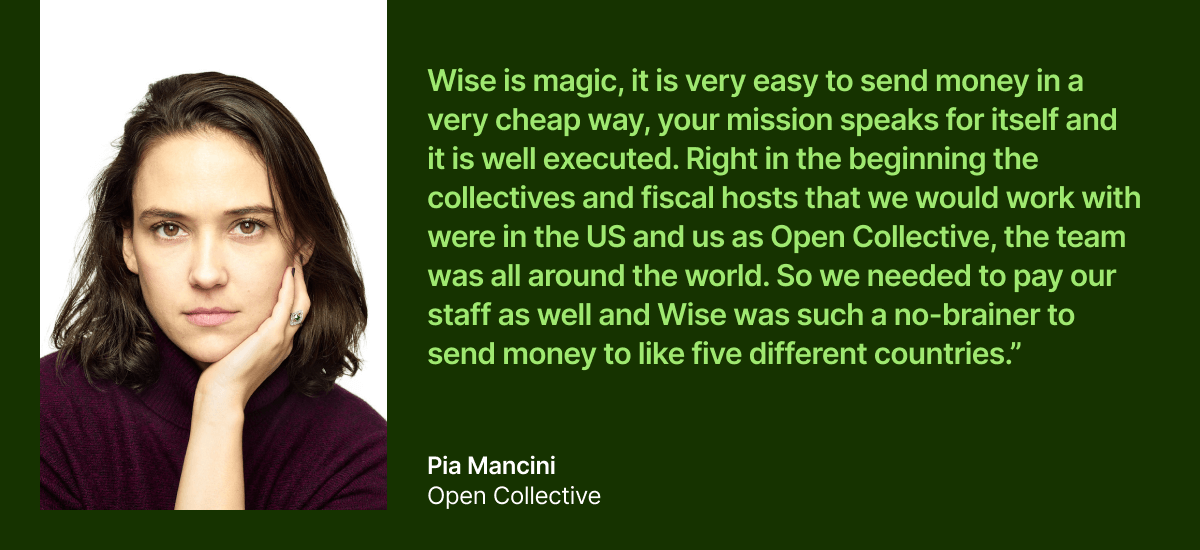Austria corporate tax - guide for international expansion
Learn about the corporate tax system in Austria, its current rates, how to pay your dues and stay compliant, and best practices.

Want to start a business in Norway? It’s a great choice of location, as the country boasts a strong economy, pro-business climate and highly skilled workforce. It’s also a popular destination for international businesses to set up shop.
In this guide, we’ll run through all the essentials of starting a business in Norway as a foreigner. This includes how company registration in Norway works, legal entities, costs and those crucial first steps to take.
We’ll also show you a smart way to manage your company’s finances in Norway, Europe and worldwide, using Wise Business - the ideal solution for international businesses.
💡 Learn more about Wise Business
Norway is a highly attractive place to set up a new company. Its government and policies are pro-business, and very welcoming to foreign investors and entrepreneurs. In fact, Norway was ranked in the top 10 of the Ease of Doing Business report 2020.¹
The country has a strong and stable economy, along with an efficient banking system, world class industries and highly developed infrastructure. Its workforce is highly educated and skilled. Plus, Norway is an EEA member, with rules, policies and legislation similar to EU countries. It’s also ideally located for access to consumer and business markets in both Scandinavia and Europe.
Researching business opportunities in Norway? The following are some of the fastest-growing and most GDP-contributing sectors in the country:²
- Offshore energy (oil, gas and wind)
- Green technologies
- Defence and aerospace
- Information technologies
- Shipping and maritime
- Healthcare
- Travel and tourism
- Consumer goods.
The business culture in Norway may also be attractive to UK entrepreneurs. It is rooted in equality and trust, and the country itself is known for its high quality of life and healthy work-life balance. Most Norwegians also speak English.
One of the first steps to get your new business up and running is to legally register it with the Norway company register. This is called the Register of Business Enterprises.
Sole proprietorships may also have to register with the Central Coordinating Register for Legal Entities in order to receive an organisation number.
Before you can do any of this, you’ll need to get a D-number. This is a unique identification number, usually used for people who have a temporary connection to Norway. The D-number is required to establish a business, and to open a Norwegian business bank account.³
You will also need to make sure you have a Norwegian business address.³
Another crucial step is to choose a legal structure for your new business. Here are the most common business types in Norway:
- Limited company
- Sole proprietorship
- General partnerships (ANS/DA)
- Norwegian-registered foreign business (NUF)
- Public limited company.
A private limited company in Norway is best suited for small to medium sized businesses. A minimum share capital of 100,000 NOK is required, and shareholders have limited liability.
If it’s just you running the business on your own, a sole proprietorship may be the most suitable choice of structure. You’ll have full liability for the obligations and debts of the business. You don’t need to be a Norwegian resident, but you will need a business address in the country.
A general partnership is set up by two or more partners, who have unlimited liability for the obligations of the business. The company must be registered with the Register of Business Enterprises, but there’s no minimum share capital required.
A NUF is for foreign businesses with active business operations in Norway. It must be registered in the Register of Business Enterprises.
A public limited liability company is a structure most commonly used by larger businesses, as there’s a minimum share capital of 1 million NOK. Shareholders have limited liability, and shares can be transferred. A physical business address in Norway is required.
Ready to get started? Here are the initial steps you’ll need to follow to start a business in Norway:³
Have questions about starting your own business in Norway? We’ll tackle some of the most commonly asked questions below.
Norway is an excellent place to start a business. It has a strong, stable economy, highly skilled workforce and exceptional quality of life. Government policies (including tax) are pro-business, and the country is welcoming to foreign investors.
The fee to register with the Register of Business Enterprises varies depending on your business structure:⁵
| Business type | Registration fee |
|---|---|
| Limited company | 5,784 NOK |
| Sole proprietorship | 2,656 NOK |
| General partnerships (ANS/DA) | 2,656 NOK |
| Norwegian-registered foreign business (NUF) | 3,205 NOK |
| Public limited company | 5,784 NOK |
Check below the current conversion rate between GBP and NOK.
Wise Business account is a handy tool for UK business expanding abroad. Once you set up your business in Norway you can easily convert British Pounds to Norwegian Krone to hold money on the currency or set payments like a local. All conversion is done based on the mid-market exchange rate with low and transparent fees.
Get started with Wise Business 🚀
Yes, you can start a business in Norway as a foreigner from the UK. You don’t necessarily have to be living there, but you will need a Norwegian business address. There may be other requirements too, such as a work visa (if you’ll be living there) and a D-number.
Corporate tax in Norway is 22%, although there are some exemptions depending on industry and geographical location.³
VAT in Norway is chargeable on turnovers of 50,000 NOK and above (for private limited companies), and is set at 25%.³
A Norwegian bank account will certainly be useful for your new business. But it’s also worth considering alternatives which could save you time and money when managing your finances internationally.
Open a Wise Business account and you can manage your company’s finances in 40+ currencies all in one place, including NOK, EUR and GBP. You’ll be able to pay suppliers and staff in their own currency, as well as receiving payments in multiple currencies.
You can even automate payments using the powerful Wise API to save even more time. See how it works here in our case study

Wise payments are fast and fully secure (even for large amounts). Best of all, you’ll only pay low, transparent fees and always get the mid-market exchange rate.
This is the rate that banks use to buy and sell currency, and is widely considered the fairest rate you can get. When banks carry out currency conversions on behalf of customers, they usually add a mark-up or margin to the exchange rate. This makes it more expensive for your business, as less of your money reaches your recipient.
It’s quick and easy to open a Wise Business account, with a fully digital application, verification and on-boarding process. Check out the requirements here.
Get started with Wise Business 🚀
And that’s it - all the essentials you need to know about starting a business in Norway as a foreigner. We’ve covered company registration in Norway, legal entities, corporate tax, registration fees and even a few tips on how to do business in Norway.
This should act as a solid starting point as you begin to set up your new venture. Good luck!
Sources used for this article:
Sources checked on 01-Mar-2024
Disclaimer: The UK Wise Business pricing structure is changing with effect from 26/11/2025 date. Receiving money, direct debits and getting paid features are not available with the Essential Plan which you can open for free. Pay a one-time set up fee of £50 to unlock Advanced features including account details to receive payments in 22+ currencies or 8+ currencies for non-swift payments. You’ll also get access to our invoice generating tool, payment links, QuickPay QR codes and the ability to set up direct debits all within one account. Please check our website for the latest pricing information.
*Please see terms of use and product availability for your region or visit Wise fees and pricing for the most up to date pricing and fee information.
This publication is provided for general information purposes and does not constitute legal, tax or other professional advice from Wise Payments Limited or its subsidiaries and its affiliates, and it is not intended as a substitute for obtaining advice from a financial advisor or any other professional.
We make no representations, warranties or guarantees, whether expressed or implied, that the content in the publication is accurate, complete or up to date.

Learn about the corporate tax system in Austria, its current rates, how to pay your dues and stay compliant, and best practices.

Learn about the corporate tax system in Botswana, its current rates, how to pay your dues and stay compliant, and best practices.

Learn about the corporate tax system in Chile, its current rates, how to pay your dues and stay compliant, and best practices.

Learn about the corporate tax system in Montenegro, its current rates, how to pay your dues and stay compliant, and best practices.

Learn about the corporate tax system in Monaco, its current rates, how to pay your dues and stay compliant, and best practices

Learn about the corporate tax system in Costa Rica, its current rates, how to pay your dues and stay compliant, and best practices.